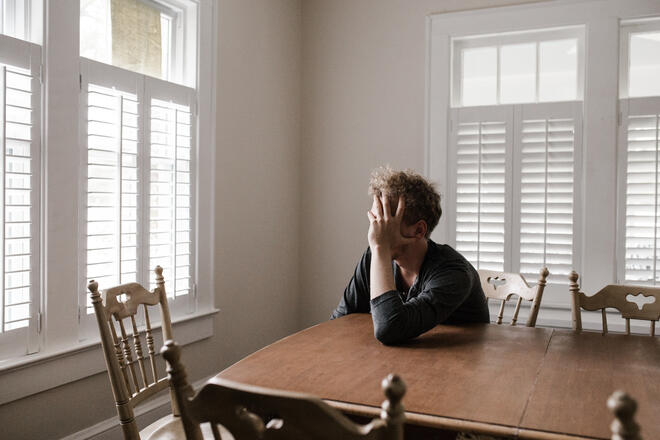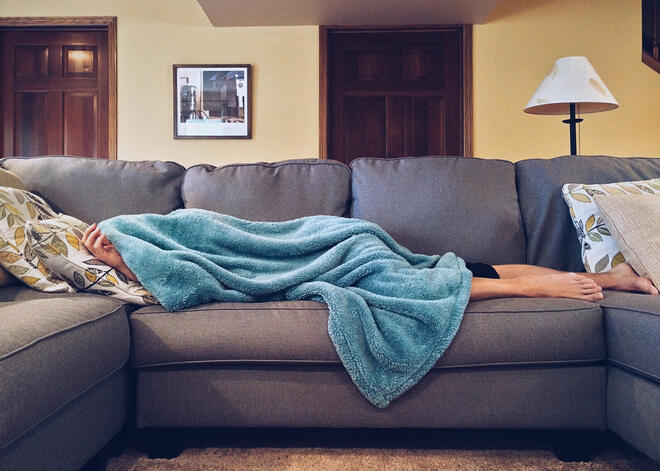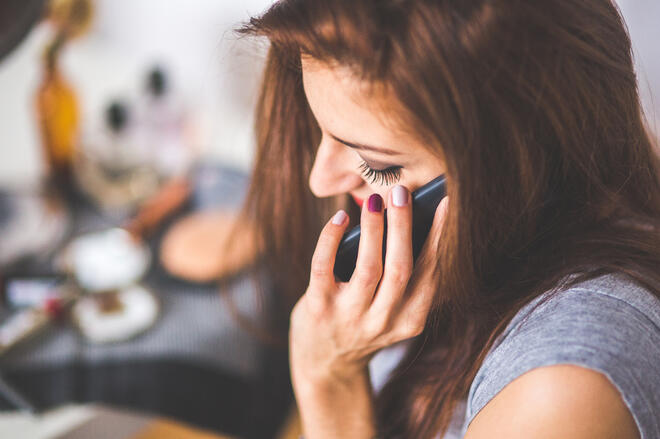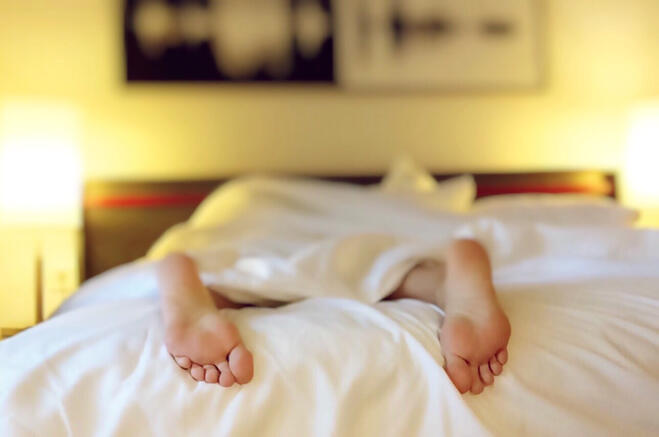Do you have sleep apnea?
Find out with a home sleep study.

What is sleep apnea?
Sleep apnea is a sleep disorder that causes the sufferer to start and stop breathing repeatedly while they sleep. This alone can dramatically disrupt your sleep. Other symptoms of sleep apnea include:
| During sleep: | Upon waking: |
|---|---|
| Snoring | Irritability |
| Insomnia | Fatigue |
| Gasping for air | Hypersomnia |
Sleep apnea is a potentially serious medical condition, and there are several different types of sleep apnea—each with respective causes and complications.
What is a home sleep study?
A home sleep study monitors your breathing while you sleep—it does not monitor how long you slept during the night.
The home sleep apnea testing device can either be picked up or delivered to your home. A medical professional will give you detailed instructions on the operation of your specific sleep apnea testing device.
Leading up to your test, try to stick to your routine. However, you should avoid consuming caffeine or taking a nap in the afternoon on the day of your home sleep study. At bedtime, put the device on before you get in bed. Typically, a mask with tubes that you insert into your nostrils monitors your breathing patterns, while a small clip on your finger measures oxygen levels. Other sensors are placed on your abdomen and chest to measure their rise and fall as you breathe. Lie down, get comfortable, and drift into dreamland. That’s it! Come morning, remove the device and return it to The Sleep Center.
Though it may seem a daunting task to sleep with monitors hooked up to your face and body while you try to get some rest—since it’s difficult for you to get a restful night’s sleep as it is—home sleep apnea tests are minimally invasive, affordable, and take place in the comfort of your bedroom. The benefits far outweigh the downsides; and when compared to an in-lab test, a home sleep study feels like a dream.


What happens after my home sleep study?
After you return your device to The Sleep Center, your results are reviewed by sleep specialists. In a few weeks’ time, your sleep specialist will contact you to discuss your results and determine the appropriate next steps for you.
Not all sleep disorders are caused by breathing trouble. If the results of the test do not point toward sleep apnea, the specialists at The Sleep Center may advise that you come in for an in-lab sleep study or consult with your physician to pinpoint the cause(s) of your poor sleep.
Is a home sleep study right for me?
Your primary care physician may recommend a home sleep study if it is very likely that you have obstructive sleep apnea, and if you have no known or suspected sleep disorders or medical conditions that could be mistaken for sleep apnea (or that could otherwise affect your sleep).
It’s also helpful if you are a back or side sleeper or are able to sleep on your back or side for the purpose of the home sleep study.

take the first step
It can be frightening to think you might have sleep apnea—but finding out doesn’t have to be. At The Sleep Center, our friendly and knowledgeable specialists can talk you through the home sleep study process and put your mind at ease. Don’t hesitate to take control of your sleep health—reach out to us today.